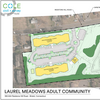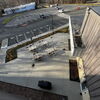
Processing Your Payment
Please do not leave this page until complete. This can take a few moments.
- News
-
Editions
View Digital Editions
Biweekly Issues
- May 13, 2024
- April 29, 2024
- April 15, 2024
- April 1, 2024
- March 18, 2024
- March 4, 2024
- February 19, 2024
- February 5, 2024
- January 22, 2024
- + More
Special Editions
- Lists
- Viewpoints
- HBJ Events
- Business Calendar
- Custom Content
Branford’s Wren Laboratories applies groundbreaking tools to COVID testing
 PHOTOS | Liese Klein
Wren Laboratories team at the company's Branford facility
PHOTOS | Liese Klein
Wren Laboratories team at the company's Branford facility
When state public health officials came calling at the start of the COVID-19 pandemic, Wren Laboratories was ready.
The Branford company already had state-of-the-art testing facilities and equipment, along with expertise in a form of highly precise PCR testing that can detect the RNA of cancer cells in blood. All that was needed was a slight shift in focus: Finding viral RNA in samples of saliva.
“They said ‘You guys have all the skills. Can you build a COVID test?’ ” recalled Mark Kidd, co-founder and scientific director at Wren.
With some new equipment and additional personnel, the company was able to create a test within weeks.
“Wren’s at-home test is a huge breakthrough,” U.S. Sen. Chris Murphy said this February, naming the company as “Innovator of the Month” statewide. “Manufacturers all across Connecticut like Wren Laboratories have stepped up and transformed their production lines to help combat this virus.”
Now the COVID-19 test that Wren developed is poised to enter the direct-to-consumer market on a major scale, offering a speedy and more accurate alternative to most of the tests currently available. In July, Wren launched the first Food and Drug Administration-approved COVID saliva test for children ages 5 and older.
“Having a widely available saliva PCR test for children as young as 5 years old, who cannot yet be vaccinated, is a game changer and will help facilitate the nation’s much-needed fall reopening,” Kidd said.

The company is now securing the raw materials and space to produce the test on a larger scale.
“We’re creating a business and helping the community at the same time,” said Uri Zilberman, a managing partner at Impact Ventures Services who is serving as executive-in-residence at Wren to develop commercial opportunities.
Packaged in a robin’s-egg-blue box, the Wren home test works like at-home DNA tests: Spit in a tube and send it off. What’s different is that the company’s proprietary buffer — or chemical solution — mixes with saliva when the container is sealed, allowing for a highly accurate analysis of what type of RNA is present, and how much.
The buffer binds with viral RNA, “exploding” and deactivating the virus while preserving its genetic information. Results are ready in 24 hours.
Translating advances
Wren Laboratories’ unique buffer is one outcome of a discovery process that started decades earlier in laboratories at Yale University. Kidd and his mentor at Yale, emeritus professor Irvin M. Modlin, set up a lab near Science Park in 2004 to explore the applications of their research on detecting cancer.
The two researchers began developing the lab techniques and algorithms needed to conduct a “blood biopsy” of a cancerous tumor by analyzing RNA in the blood. Wren was established in 2014 as the technology continued to show promise.
Gradually the company grew, moved to Branford and began securing approvals for its first test. In 2018, California was the first to issue a permit for Wren’s NET test for neuroendocrine cancer, a disease that can occur anywhere in the body in specialized cells.
With the NET test, a physician can determine if a cancer is more likely to be aggressive or respond to certain types of treatments. After treatment, the test can tell if the cancer is still present in the body, in some cases nearly two years before a tumor could be detected with a scanner.
“There’s a very different kind of mindset with working in academia, in the laboratory, it’s almost one step removed from reality,” Kidd said. “Taking that next step, taking what you do and actually translating it, seeing the clinical translatability and the impact, ... it’s very gratifying to be able to change somebody’s life.”
Before the pandemic, Wren was looking to expand its testing to other types of cancer and other uses with cancer medicine, including screenings of at-risk populations. A prostate cancer test is awaiting approval, along with breast and lung cancer versions using Wren’s proprietary methods.
Researchers are using Wren tests in large studies of men of African origin, who are at high risk of very aggressive forms of prostate cancer, Kidd said.
“There’s an enormous unmet need to make an early diagnosis,” he said.
The potential of the cancer-testing technology has drawn investment and attention to the company, which is privately held and did not disclose its revenue.
After more than doubling its staff and footprint after COVID hit, Wren is planning to further expand both its staff and facility in coming months, Kidd said. The company currently employs about 25 people and occupies a 6,000-square-foot space in a business park off Branford’s East Main Street.
“The kind of work that Mark and the team are doing in terms of cancer and the impact that can have on the world, that’s why I’m here,” Zilberman said.
He is working on behalf of a family-office investor that sees great potential in the technology.
“We think there’s a deep science there but we need to take it from science fiction to a business,” he said.
Although the COVID-19 tests have diverted some of the company’s energy, Kidd said Wren continues to develop its cancer-detecting tools. The pandemic has slowed clinical trials and delayed many doctor visits, but the disease remains.
“Cancer hasn’t stopped because of COVID,” Kidd said. “The demand is there, you want to continue to provide that essential service despite the problems.”
Variant uncertainty
As for the future of pandemic testing, Kidd sadly sees it as a growth market considering how readily the COVID virus mutates. PCR testing like that offered by Wren is necessary to detect variants of the virus and track transmissibility, so the company is likely to expand its marketplace presence.
Kidd said he’s concerned in particular about the rise of the Lambda variant of COVID, which has a very different structure that allows it to evade current vaccines. Widespread in South America, Lambda has yet to be detected on a wide scale in the United States. Even so, other mutated versions of COVID may pose future risks.
“This is the optimistic component of the discussion,” Kidd said. “We’ve learned a lot, so if we can apply it, we should be OK.”

2022 Giving Guide
This special edition informs and connects businesses with nonprofit organizations that are aligned with what they care about. Each nonprofit profile provides a crisp snapshot of the organization’s mission, goals, area of service, giving and volunteer opportunities and board leadership.
Learn more
Subscribe
Hartford Business Journal provides the top coverage of news, trends, data, politics and personalities of the area’s business community. Get the news and information you need from the award-winning writers at HBJ. Don’t miss out - subscribe today.
Subscribe
2024 Book of Lists
Delivering Vital Marketplace Content and Context to Senior Decision Makers Throughout Greater Hartford and the State ... All Year Long!
Read Here-
2022 Giving Guide
This special edition informs and connects businesses with nonprofit organizations that are aligned with what they care about. Each nonprofit profile provides a crisp snapshot of the organization’s mission, goals, area of service, giving and volunteer opportunities and board leadership.
-
Subscribe
Hartford Business Journal provides the top coverage of news, trends, data, politics and personalities of the area’s business community. Get the news and information you need from the award-winning writers at HBJ. Don’t miss out - subscribe today.
-
2024 Book of Lists
Delivering Vital Marketplace Content and Context to Senior Decision Makers Throughout Greater Hartford and the State ... All Year Long!
ABOUT
ADVERTISE
NEW ENGLAND BUSINESS MEDIA SITES
No articles left
Get access now
In order to use this feature, we need some information from you. You can also login or register for a free account.
By clicking submit you are agreeing to our cookie usage and Privacy Policy
Already have an account? Login
Already have an account? Login
Want to create an account? Register
Get access now
In order to use this feature, we need some information from you. You can also login or register for a free account.
By clicking submit you are agreeing to our cookie usage and Privacy Policy
Already have an account? Login
Already have an account? Login
Want to create an account? Register






0 Comments